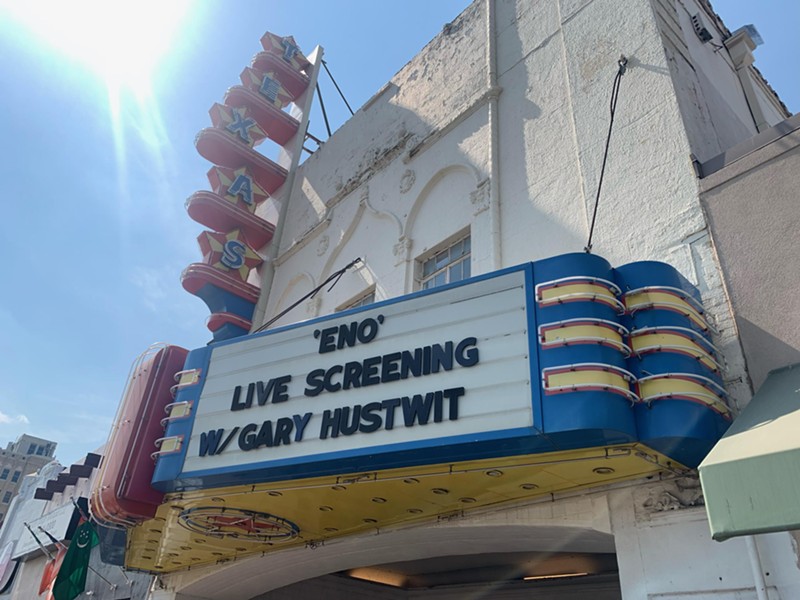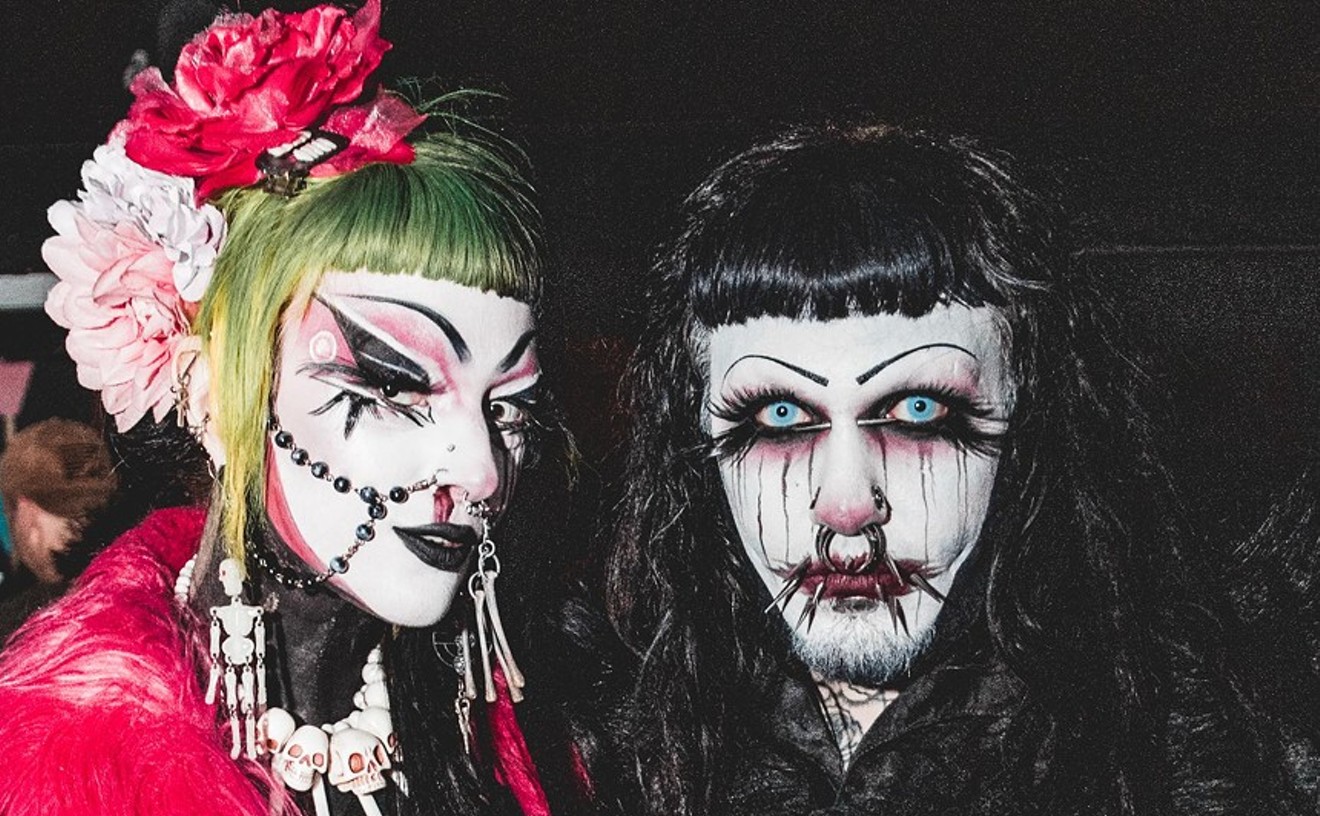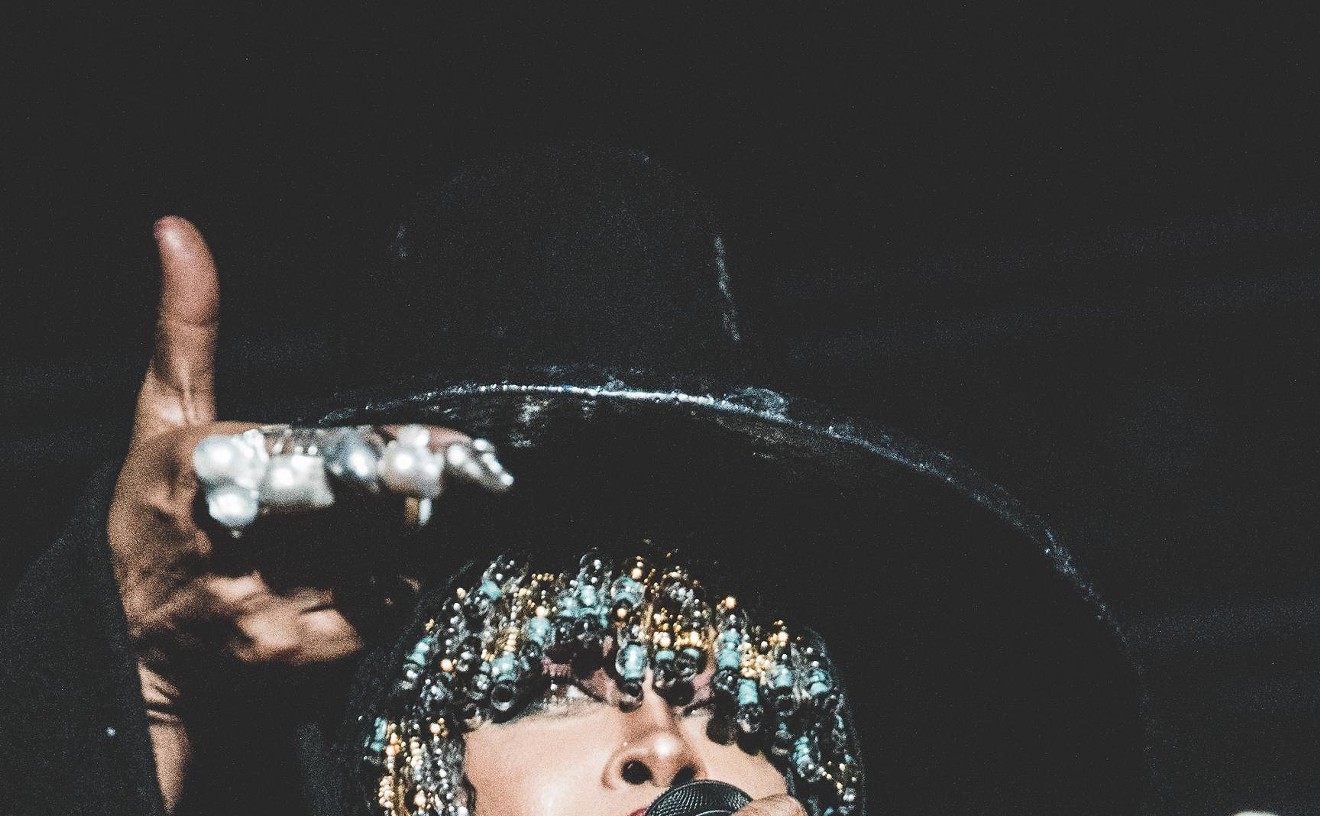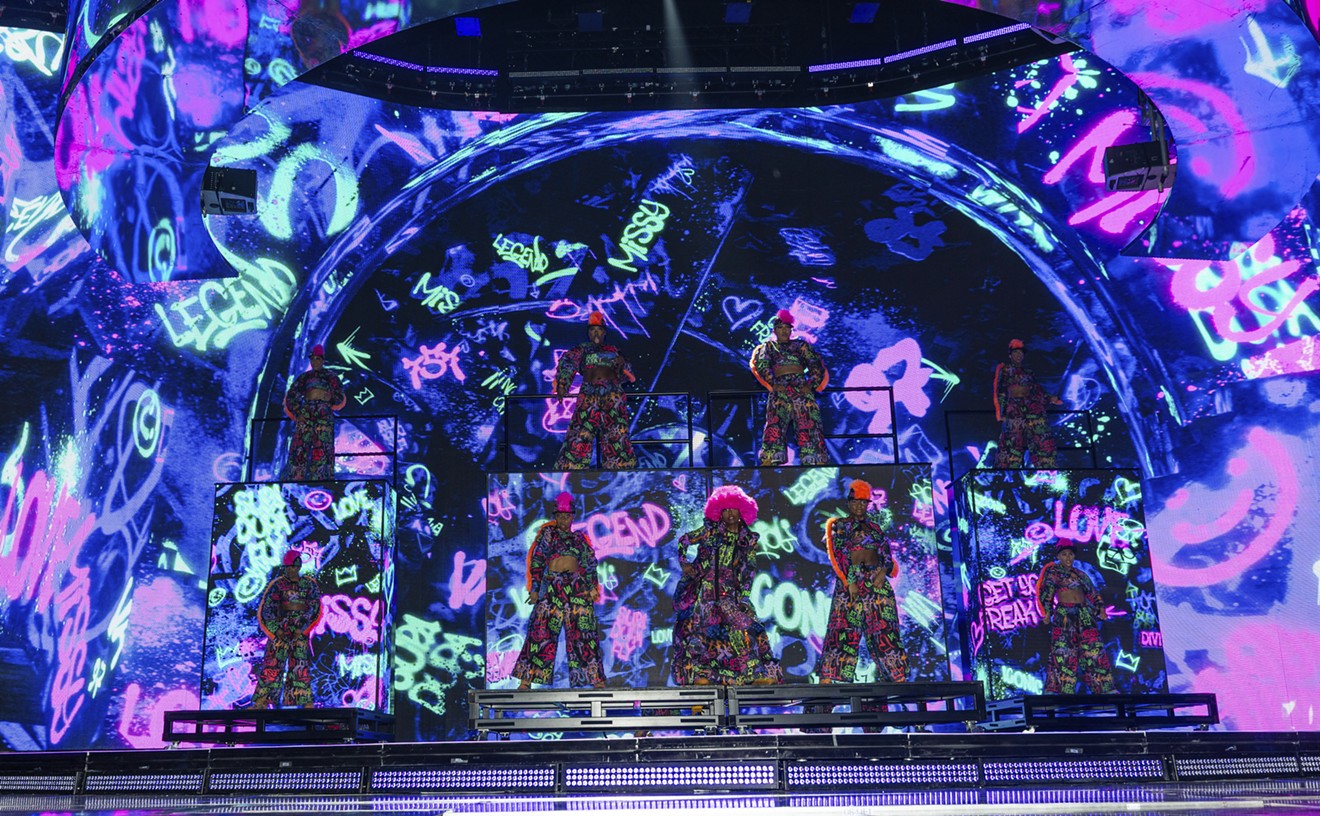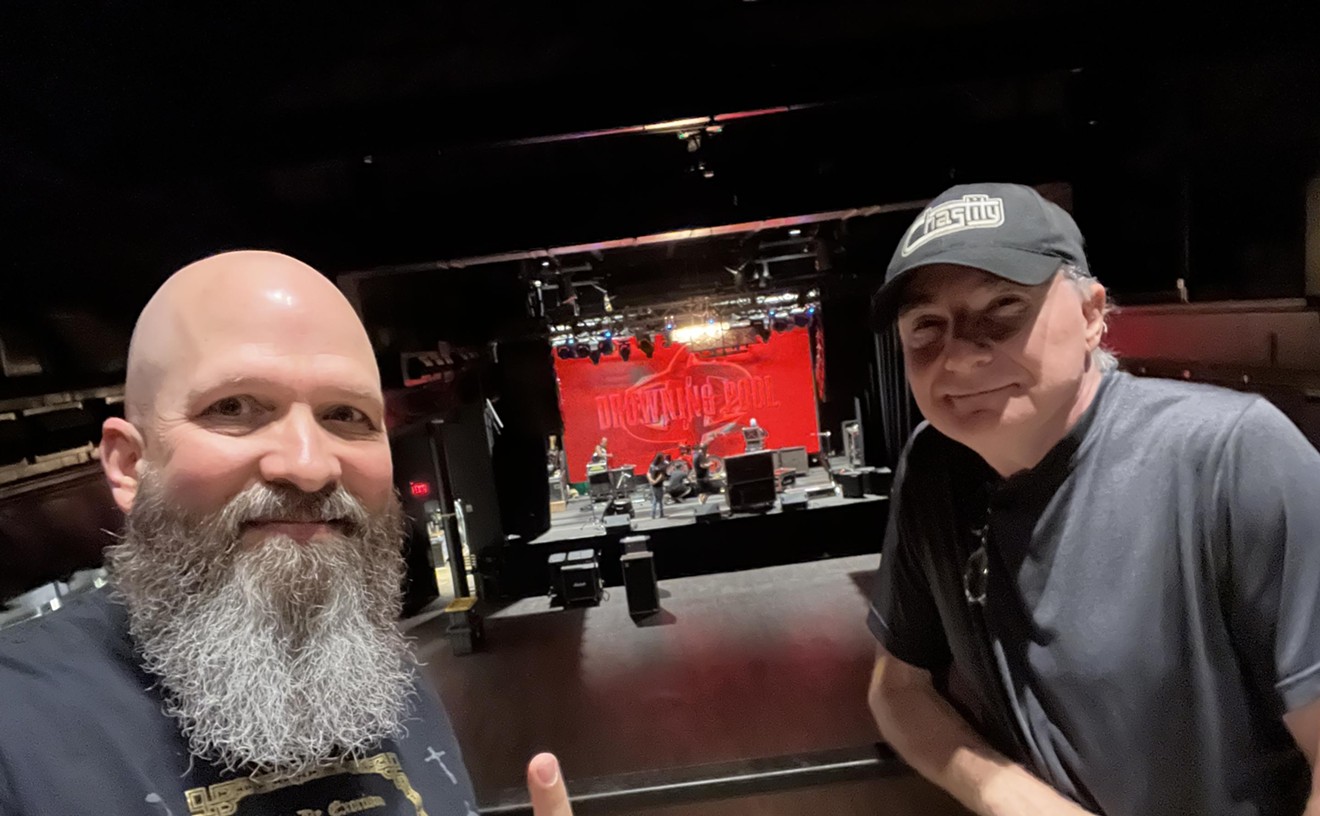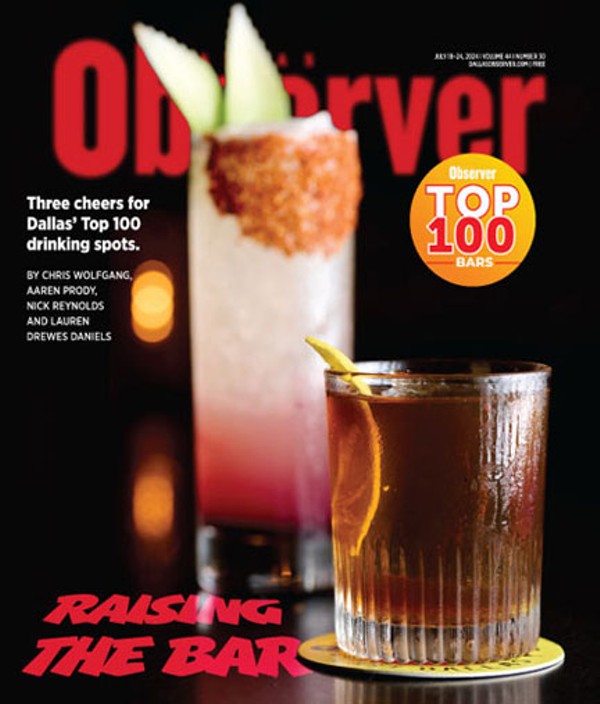You know that scene in Ratatouille where the food critic (whose name is Ego) takes a bite of the titular dish, and it reminds him of why he loves food in the first place? In the 2007 Pixar movie, this moment reinvigorated Ego’s spirit and restored his love for a craft that connects humanity and expresses culture.
This Ego moment happened to some of us Saturday evening during the screening of the documentary Eno at Dallas' Texas Theatre. As the credits rolled to the sound of 300-400 hundred people applauding, I thought about the moments in my life that made me appreciate music, almost in sizzle-reel fashion: being 6 years old and sitting in the backseat of my dad’s truck while Lyle Lovett and Lucinda Williams play on the radio. Being 13 and discovering punk music thanks to family friend Michael Logan, who may as well have been my older brother. Two years later, when I saw Kathleen Hanna from Bikini Kill on the cover of Alternative Press magazine, which prompted the discovery of bands Black Flag, Crass and Husker Du. Being a college student in Denton and letting my love of The Velvet Underground prime me for an entirely new musical reawakening at my old stomping grounds, Rubber Gloves Rehearsal Studios, where I learned to appreciate the genius of Throbbing Gristle, Guided by Voices and George Clinton. Hearing Townes Van Zandt while my wife walked down the aisle.
These are just a few droplets in a deluge of music-related memories, but everyone who loves music similarly has memories of when music opened up everything good inside them and made life worth living.
This essence is lost now more than ever in this Mad Max hellscape of an era, where the musical purveyors with the most sway and success are anathema to doing anything that bears even the slightest risk of not getting a half-billion streams. This is an era where A-list pop artists do the same tired fusion of disco and new wave and call it “psychedelic.” It’s one where major labels will throw money at Phoebe Bridgers and Lana Del Rey wannabes who conjure slice-of-life musings about nothing and pass them off as raw vulnerability.
The Eno documentary, about musician and producer Brian Eno, cleansed our weariness with impeccable efficiency and gave us a booster shot of excitement and curiosity.
For one, the documentary proves that even in this AI age, the creative spirit will ultimately triumph, as it did on Saturday. The documentary is the world’s first “generative feature film,” which means AI picks which footage makes the cut of a particular screening and in which order. For Eno and director Gary Hustwit’s proprietary generative filmmaking software “Brain One,” there were over 30 hours worth of interviews with documentary subject Brian Eno and 500 hours worth of footage to choose from, meaning that the odds of an exact screening being replicated twice are 1-in-52 quintillion.
For the Dallas screening, we were lucky enough to get insights into Eno’s work with David Bowie on songs such as “Heroes.” We learned that Bowie exclusively listened to Eno’s album Discreet Music while he was recovering from cocaine addiction. We learned about how difficult the sessions for DEVO’s Q: Are We Not Men? were for Eno, who produced it, and similarly learned about how Eno’s love of afrobeat legend Fela Kuti guided the sessions for Talking Heads’ Remain in Light.
We also saw Eno say, “Shit, shut up” in response to a YouTube ad for Vrbo, to which we were all subjected for the simple reason that Eno wanted to show us a Kuti song he loved.
As most music documentaries attempt to do, this showed a uniquely human side to Eno and brought him down from the lofty heights of his own legend and cultural significance to our level, only this time, it was done successfully. We saw a side of Eno that we have never seen before, and this documentary reminded us that there are 52 quintillion other sides to him that we don’t even know about.
The Eno documentary screened at Texas Theatre was roughly 1 hour and 20 minutes long — a manageable watch for even those with the shortest of attention spans. Much of the subject matter that received five to ten minutes of mention could have justified a similarly long documentary of its own.
Another thing Eno did so well was impress upon the viewer just how accomplished and ambitious he is as a creative mind. Right as Eno regaled us with tales of, say, working with U2, the subject abruptly changes to something like his climate change activism or what notebooks he kept around in the late 1970s. The film creates a whiplash effect right as you are completely invested in what more he has to say, and while your first instinct is to recoil, you also cannot help but see where else the ride takes you.
In true Eno fashion, the documentary is a paragon of creative exploration. It shows the ambitious pursuits and reimagination of Eno while undertaking its own ambition and reimagination, and that is a hell of a feat. Eno has turned down participation in many documentaries on his own life and career, because as Hustwit explained in the post-screening Q&A, Eno has a general cynicism about how many music documentaries represent their subjects.
That makes it all the more special that this documentary came to be and showed us the possibilities within storytelling and filmmaking, just as Eno showed us what used to be similarly unrealized possibilities with music production and performance.
The Dallas documentary ended with footage of David Byrne reading one of the suggestion cards from Eno’s “Oblique Strategies” collection (created in 1975 to aid artists in prompting their creativity), when he read from the card, “Go outside. Shut the door.”
And after the screening and Q&A, that’s just what we did. We went outside, shut the door, and came out of the theater with a newly rekindled appreciation for how beautiful of a thing music is, and how greatly enriched we are because of the insatiably creative spirit personified by Brian Eno.
Now go start a band and blow our minds.
[
{
"name": "Air - MediumRectangle - Inline Content - Mobile Display Size",
"component": "18855504",
"insertPoint": "2",
"requiredCountToDisplay": "2",
"watchElement": ".fdn-content-body",
"astAdList": [
{
"adType": "rectangle",
"displayTargets": "mobile"
}
]
},{
"name": "Editor Picks",
"component": "17105533",
"insertPoint": "4",
"requiredCountToDisplay": "1",
"watchElement": ".fdn-content-body",
"astAdList": [
{
"adType": "rectangle",
"displayTargets": "desktop|tablet"
},{
"adType": "rectangle",
"displayTargets": "desktop|tablet|mobile"
}
]
},{
"name": "Inline Links",
"component": "18349797",
"insertPoint": "8th",
"startingPoint": 8,
"requiredCountToDisplay": "7",
"maxInsertions": 25
},{
"name": "Air - MediumRectangle - Combo - Inline Content",
"component": "17105532",
"insertPoint": "8th",
"startingPoint": 8,
"requiredCountToDisplay": "7",
"maxInsertions": 25,
"watchElement": ".fdn-content-body",
"astAdList": [
{
"adType": "rectangle",
"displayTargets": "desktop|tablet"
},{
"adType": "rectangle",
"displayTargets": "desktop|tablet|mobile"
}
]
},{
"name": "Inline Links",
"component": "18349797",
"insertPoint": "8th",
"startingPoint": 12,
"requiredCountToDisplay": "11",
"maxInsertions": 25
},{
"name": "Air - Leaderboard Tower - Combo - Inline Content",
"component": "17105535",
"insertPoint": "8th",
"startingPoint": 12,
"requiredCountToDisplay": "11",
"maxInsertions": 25,
"watchElement": ".fdn-content-body",
"astAdList": [
{
"adType": "leaderboardInlineContent",
"displayTargets": "desktop|tablet"
},{
"adType": "tower",
"displayTargets": "mobile"
}
]
}
]

